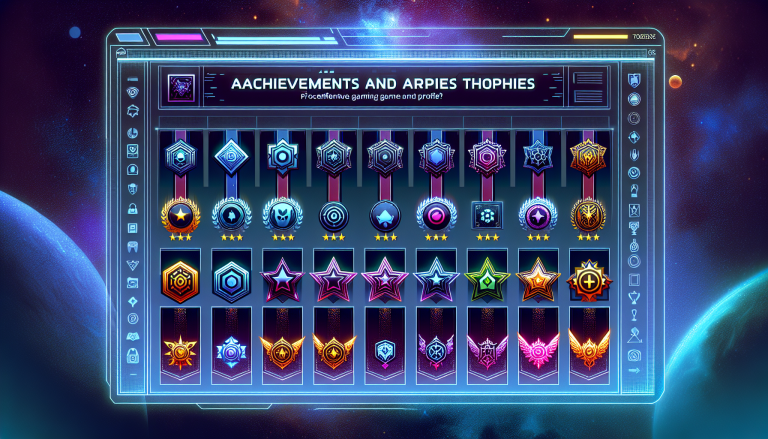The Impact of Gaming on Parenting: Understanding the Challenges
Let’s talk about gaming and parenting. It’s no secret that video games have become an integral part of many children’s lives. They provide entertainment, social interaction, and even educational benefits. But as a parent, it’s important to understand the challenges that come along with gaming and how it can impact your parenting journey.
First and foremost, it’s crucial to recognize that gaming can sometimes be addictive. Just like any other form of entertainment, excessive gaming can have negative consequences. Children may become disinterested in other activities, neglect their responsibilities, and even experience physical and mental health issues. As a parent, it’s your responsibility to monitor and regulate the amount of time your child spends gaming.
Setting boundaries is essential when it comes to balancing gaming and parenting. Establishing clear rules and guidelines will help your child understand their limitations and develop healthy habits. Encourage a healthy balance of gaming and other activities such as outdoor play, reading, or pursuing hobbies. Remember, a diverse range of experiences will contribute to your child’s overall development.
One effective strategy for fostering positive gaming experiences is to encourage skill development and social interaction. Many video games require problem-solving skills, critical thinking, and strategizing. Encourage your child to explore games that offer educational benefits and challenge their cognitive abilities. Additionally, multiplayer games can provide opportunities for socialization and teamwork. Engaging in online communities or organizing gaming sessions with friends can help your child develop social skills and build friendships.
As a parent, it’s crucial to be actively involved in your child’s gaming experiences. Nurturing responsible gaming habits means staying informed about the games your child plays and the content they are exposed to. Take the time to research games, read reviews, and understand their age ratings. Engage in conversations with your child about the games they enjoy and discuss any concerns you may have. This open dialogue will not only strengthen your relationship but also help your child make informed choices.
Monitoring online safety is another essential aspect of parental involvement in gaming. The online gaming world can sometimes expose children to inappropriate content or interactions. Familiarize yourself with the privacy settings of the gaming platforms your child uses and educate them about the importance of online safety. Encourage them to report any suspicious or harmful behavior they encounter while gaming.
Remember, being a parent in the digital age comes with its own unique set of challenges. Gaming can be a positive and enriching experience for your child, but it’s important to stay informed and actively involved. By understanding the impact of gaming on parenting, setting healthy boundaries, fostering positive experiences, and nurturing responsible gaming habits, you can create a balanced and enjoyable gaming environment for your child.
Hey there, fellow parents! Today, let’s dive into the wonderful world of parenting and gaming – a balancing act that many of us are familiar with. We all know that gaming has become increasingly popular among children and teenagers, and as parents, it’s crucial for us to understand the challenges that come along with it. So, let’s explore some strategies for setting healthy boundaries between gaming and parenting.
1. Communicate and Set Clear Expectations
The key to finding a balance between gaming and parenting lies in open communication. Talk to your child about their gaming habits and have an honest conversation about how it impacts their daily routine, responsibilities, and overall well-being. Together, set clear expectations regarding the amount of time they can spend gaming and when it’s appropriate.
For instance, you can create a schedule that designates specific times for gaming, ensuring it doesn’t interfere with schoolwork, family time, or other important activities. By involving your child in this process, you not only teach them about time management but also empower them to make responsible decisions.
2. Encourage a Variety of Activities
While gaming can be a fun and engaging pastime, it’s important to encourage your child to explore other activities as well. Help them discover new hobbies, such as sports, art, music, or outdoor adventures. By broadening their horizons, you provide them with a well-rounded experience and promote a healthy balance in their lives.
Remember, variety is the spice of life! Encourage your child to try different activities and expose them to diverse experiences. By doing so, you not only promote their physical and mental well-being but also help them develop a range of skills and interests beyond the gaming world.
3. Foster Social Interaction
Gaming doesn’t have to be an isolated experience. Encourage your child to engage in multiplayer games or join gaming communities where they can interact with other players. This fosters socialization, teamwork, and communication skills, all while enjoying their favorite games.
Additionally, consider organizing gaming sessions with friends, either online or in-person. This allows your child to have a shared gaming experience, strengthening friendships and promoting healthy social connections. Remember, balance is key – encourage a healthy mix of both virtual and real-world interactions.
4. Stay Involved and Monitor Online Safety
As parents, it’s crucial to stay involved in your child’s gaming journey. Take an interest in the games they play and the platforms they use. Familiarize yourself with the content and ratings of the games they enjoy, ensuring they are age-appropriate and align with your family values.
Additionally, educate your child about online safety. Teach them about the importance of protecting personal information, avoiding suspicious links, and reporting any inappropriate behavior they encounter while gaming. Set up parental controls and regularly monitor their online activities to ensure their safety and well-being.
By maintaining an open line of communication, encouraging a variety of activities, fostering social interaction, and staying involved in your child’s gaming experiences, you can strike a healthy balance between gaming and parenting. Remember, the key is to create an environment where gaming becomes a positive part of your child’s life, enhancing their skills, friendships, and overall development.
Fostering Positive Gaming Experiences: Encouraging Skill Development and Social Interaction
Gaming has become an increasingly prevalent form of entertainment and a popular pastime for many children and adolescents. As parents, it is important to recognize the potential benefits of gaming and guide our children to foster positive experiences in this digital world.
One of the key aspects of gaming that we can encourage is skill development. Video games often require problem-solving, critical thinking, and hand-eye coordination, which can enhance cognitive abilities. By acknowledging the skills our children gain through gaming, we can help them understand the value of their hobby and see it as more than just a leisure activity.
Encouraging skill development can be as simple as praising your child’s achievements in a game or discussing strategies and tactics with them. By engaging in conversations about gaming, you can demonstrate your interest and support, which can further strengthen your bond with your child.
Another crucial aspect of positive gaming experiences is social interaction. Many games provide multiplayer modes or online communities where players can connect with others who share similar interests. Encouraging your child to engage in these social aspects of gaming can help them develop communication skills, teamwork, and even make new friends.
One way to foster social interaction is by organizing gaming sessions with friends or family members. This can create a fun and interactive environment where your child can enjoy gaming while also building relationships. Additionally, monitoring online safety and teaching your child about responsible online behavior is essential in ensuring that their gaming experiences remain positive.
As a parent, it is important to strike a balance between encouraging skill development and setting limits on gaming time. While gaming can be beneficial, excessive screen time can have negative effects on a child’s physical and mental health. Setting reasonable boundaries and ensuring that gaming doesn’t interfere with other activities such as homework, household chores, or physical exercise is crucial.
One approach to balancing gaming and other activities is by creating a schedule or routine that includes designated times for gaming. This not only helps your child manage their time effectively but also establishes a consistent structure in their daily lives. It is important to involve your child in the process of creating the schedule, allowing them to have a sense of ownership and responsibility.
Moreover, it is essential to stay informed about the games your child plays. Familiarize yourself with the content, age ratings, and online interactions associated with the games they are interested in. This knowledge will enable you to make informed decisions about what is appropriate for your child and guide them towards games that align with their interests and values.
By fostering positive gaming experiences, we can harness the benefits of technology while ensuring our children’s well-being. Encouraging skill development and social interaction, setting healthy boundaries, and staying involved in their gaming choices are crucial steps towards creating a healthy balance between gaming and parenting.
Parental Involvement: Nurturing Responsible Gaming Habits and Monitoring Online Safety
Parental involvement is crucial when it comes to nurturing responsible gaming habits and ensuring online safety for children. As technology continues to advance, it’s becoming increasingly important for parents to stay informed and actively participate in their child’s gaming experiences. Here are some tips and strategies to help you navigate this important aspect of parenting.Educate Yourself
The first step in fostering responsible gaming habits is to educate yourself about the games your child is playing. Take the time to research the content and age-appropriateness of the games, as well as their potential impact on your child’s emotional and cognitive development. By understanding the games, you’ll be better equipped to have meaningful conversations with your child and set appropriate boundaries.












